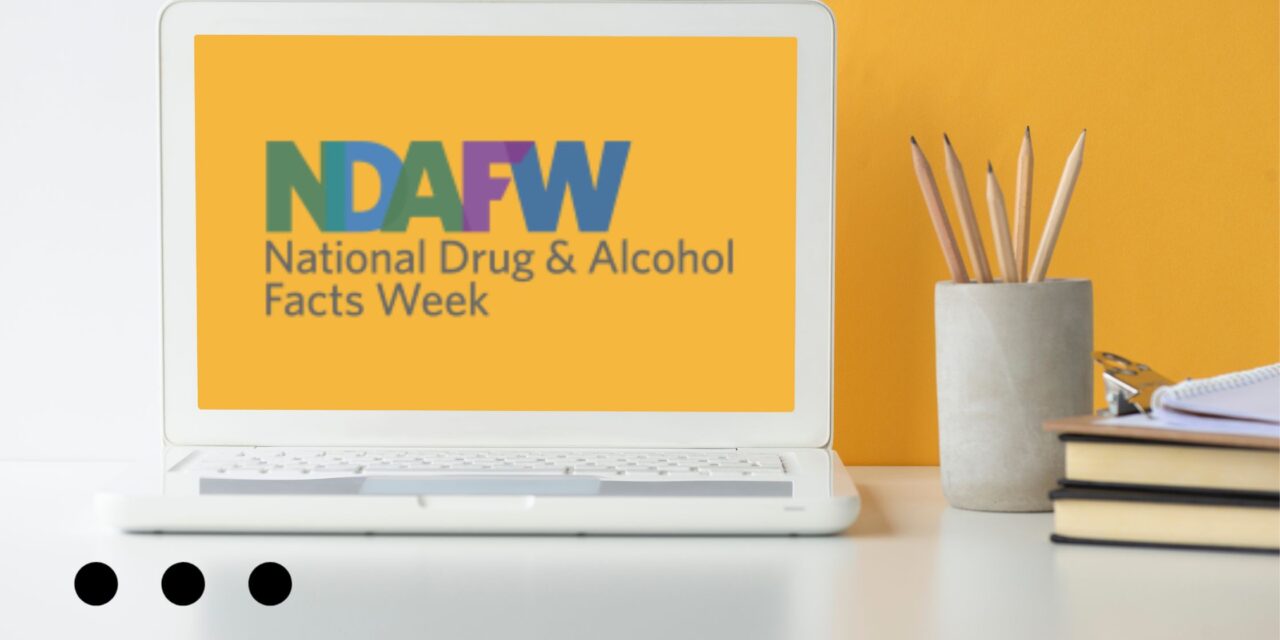National Drug and Alcohol Facts Week (NDAFW) is an annual, week-long observance dedicated to educating people, especially teens and young adults, about the realities of substance use and addiction. Held from March 17-23, this national initiative is spearheaded by the National Institute on Drug Abuse (NIDA) and the National Institute on Alcohol Abuse and Alcoholism (NIAAA) to promote science-based facts over myths and misconceptions about drugs and alcohol.
Why NDAFW Matters
Substance use remains a widespread issue, affecting millions of individuals and families. Misconceptions about drugs and alcohol contribute to dangerous behaviors and addiction risks. NDAFW provides an opportunity to:
- Debunk myths about substance use and addiction.
- Educate communities on the risks and long-term effects of drug and alcohol use.
- Encourage open conversations among families, educators, and health professionals.
- Connect individuals with resources for prevention and treatment.
Key Facts About Drugs and Alcohol
Here are some important facts to remember about drugs and alcohol in light of NDAFW.
Alcohol Is the Most Commonly Used Substance Among Teens
According to national surveys, underage drinking remains a serious public health concern. The developing adolescent brain is particularly vulnerable to alcohol’s effects, increasing risks for addiction, cognitive impairment, and risky behaviors.
Marijuana Use Is Rising, But It’s Not Risk-Free
Despite increasing legalization, marijuana use can still have serious mental and physical health consequences. Regular use in adolescents has been linked to impaired brain development, memory issues, and increased likelihood of dependency.
Opioid Addiction Continues to Be a National Crisis
Prescription painkillers, heroin, and synthetic opioids like fentanyl contribute to thousands of overdose deaths each year. The opioid crisis underscores the importance of awareness, safe prescription use, and access to treatment.
Vaping is Not a Safe Alternative to Smoking
E-cigarettes contain nicotine, toxic chemicals, and addictive properties, posing health risks to users—especially young people. Vaping has been linked to lung disease and increased likelihood of transitioning to other substances.
Mental Health and Substance Use Are Deeply Connected
Many individuals struggling with addiction also experience mental health conditions such as depression and anxiety. Treating both conditions together—a dual diagnosis approach—is key to long-term recovery.
How to Get Involved in National Drug and Alcohol Facts Week
For those looking for ways to participate in NDAFW, consider:
- Participating in educational events. Schools, community organizations, and healthcare providers often host workshops, webinars, and discussions to raise awareness about drug and alcohol facts. Check local resources to find events in your area.
- Sharing reliable information. Combat misinformation by sharing science-backed facts about substance use on social media, in classrooms, or within your social circles. Use the official hashtag #NDAFW to spread awareness.
- Encouraging open conversations. Talking about substance use with young people can be uncomfortable, but it is critical in prevention. Parents, teachers, and mentors should create safe spaces for honest, non-judgmental discussions.
- Support prevention and treatment programs. Whether through volunteering, donations, or advocacy, supporting organizations that provide education, prevention, and treatment services can help combat addiction.
The Role of Professional Treatment in Substance Use Recovery
While education and prevention efforts are essential, professional addiction treatment remains the most effective way to help those struggling with substance use disorders.
National Drug and Alcohol Facts Week is an opportunity to spread awareness, educate communities, and promote healthier choices. By understanding the facts, engaging in open conversations, and supporting those in need, we can help reduce the impact of substance use and addiction in our society.

